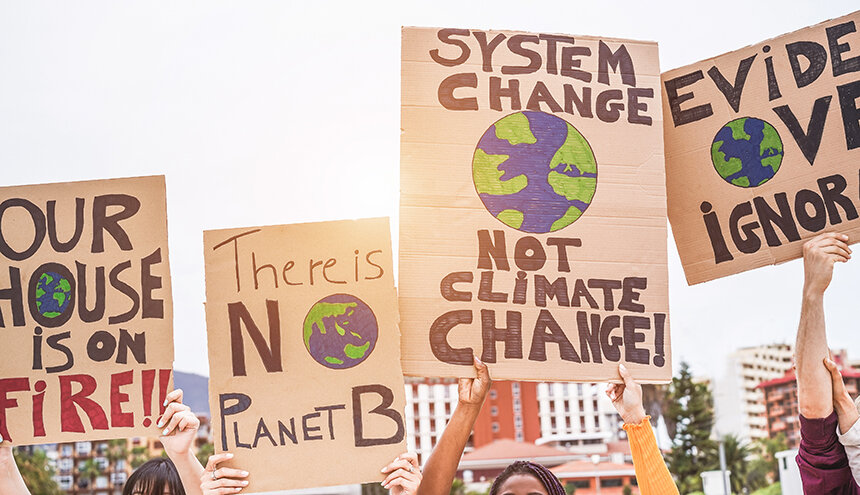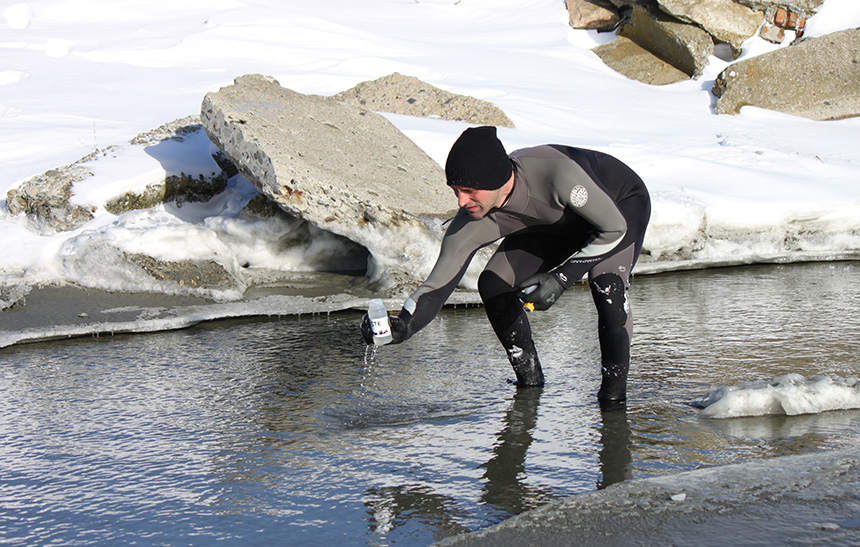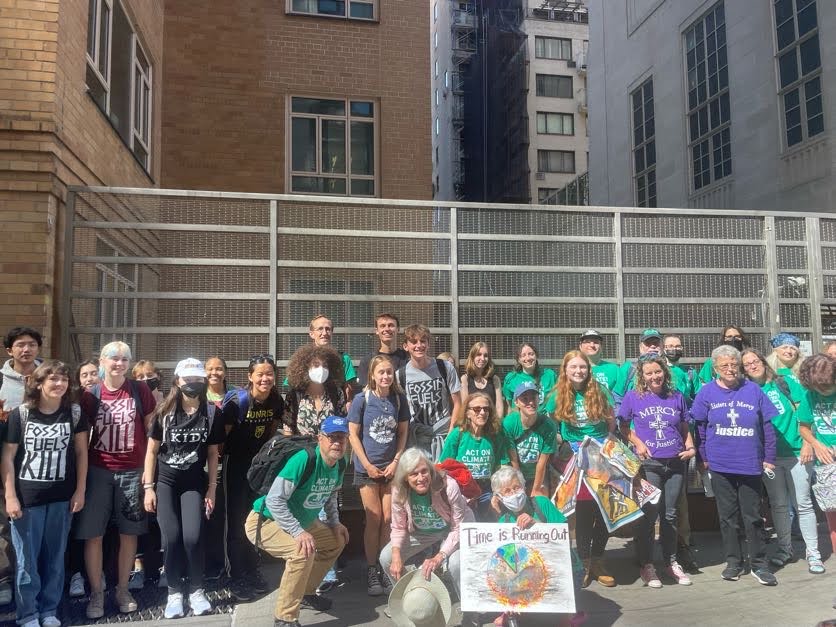Interfaith and Advocacy Collaboration Could Drive Climate Action
May 24, 2021
Local faith and science leaders recently came together at an event hosted by the Rhode Island Environmental Education Association to push for greater collaboration between Rhode Island’s environmental and religious communities in the face of climate change.
The May 20 virtual discussion, attended by more than 50 people, was led by Rev. Dante Tavolaro of St. Thomas Episcopal Church in Smithfield and Shareen Knowlton, director of education at Roger Williams Park Zoo. Together with three panelists of varying faiths and backgrounds, they challenged religious groups and environmental activists to set differences aside and collaborate in pursuit of a healthier planet.
“There seems to be a lot of potential in bringing all of us together to work toward these common goals, but it’s not happening to the degree that it could be,” Knowlton, a parishioner at St. Luke’s Episcopal Church in East Greenwich, said at the virtual roundtable inspired in part by racial and environmental justice advocate Rev. Lennox Yearwood Jr.
Rhode Island is one of the most devout states, according to a 2015 study by the Pew Research Center. About 80 percent of Rhode Islanders are religious, with 75 percent identifying as Christian and 5 percent as non-Christian.
The Ocean state is also one of the most climate-engaged in the country, according to a 2020 study by independent research center Resources for the Future. But panelists agreed that more can be done to channel faith into climate action.
“The potential for interfaith collaboration on the environment is huge because no matter what religion you are, you know, everyone should be pretty much in agreement on … what needs to be done as far as preserving the planet,” said Jeremy Goodman, who was raised in a traditional religious Jewish household and now serves as the executive director of the Rhode Island Zoological Society.
If engaged, religious groups could be “ready-made allies” for the environmental movement — allies with valuable resources, voting power and pre-organized communities across the state, according to Nicholas Knisely, bishop of the Episcopal Diocese of Rhode Island. They have a duty, he added, to hold state legislators accountable and “significantly affect change.”
“It’s part of our faith, it’s part of what we have to do to protect the environment and it’s part of what we need to do to provide for the economic future of Rhode Island,” said Knisely, who holds graduate degrees in divinity, physics and astronomy.
Gina DeMarco, district manager of the Northern Rhode Island Conservation District and author of several National Association of Conservation Districts church leader guides on topics ranging from soil and water to pollinator stewardship, added that religious groups could also play a fundamental role in on-the-ground environmental and climate justice work. Many church communities already provide hands-on help to a variety of organizations, she said, and could serve as a go-to volunteer base.
She has drawn on her Christian faith in her own conservation work, she said, despite feeling tension between the two worlds at times. Her skill set is grounded in science and education, she said, but her passion for “serving God and caring for his creation” has added the “oomph” to her work.
Goodman, too, feels science and religion can “synthesize very nicely together.” He said he sees parallels in the Jewish law of bal tashchit, which forbids wastefulness and destruction, and in tikkun olam, the concept of repairing the world.
Environmental movements can draw on parallels built into all religions as climate change impacts the Ocean State, Knisely said, and communities come to face housing crises, food insecurity, poverty and increasing coastal threats.
“There’s just so many places where they deeply connect directly,” he said. “There’s another group of allies — we’ll take the Statehouse by storm.”




I’m interested in learning more about what is being done for the Care of Creation in my area. I live in Warwick, RI and would like to connect with other people of faith who are working at improving the environment. Thank you for your response.